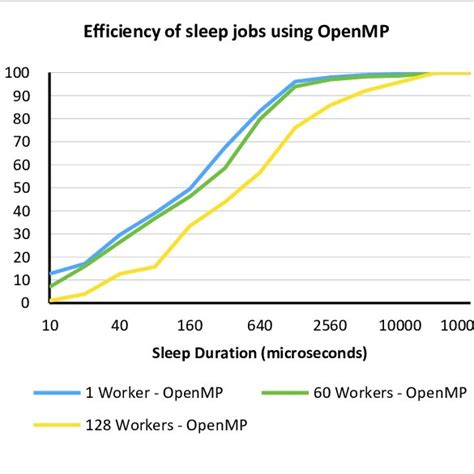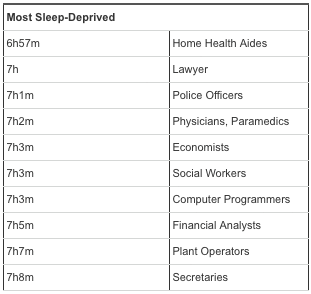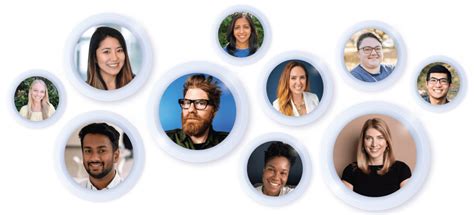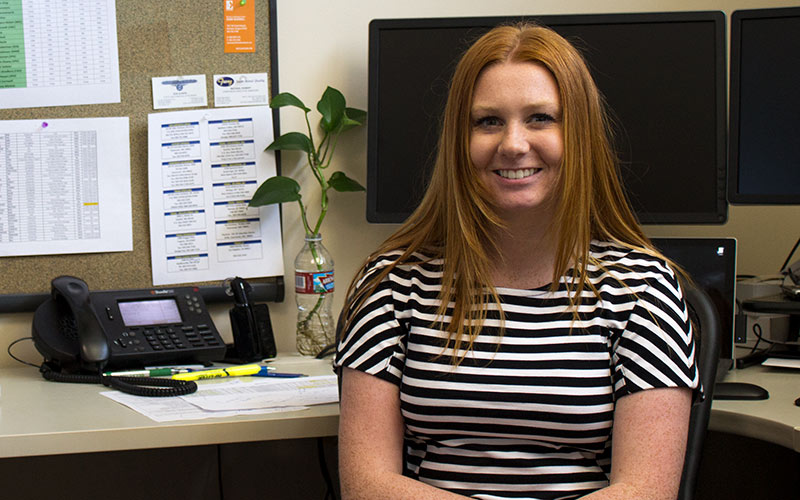Sleep Careers

In the world of healthcare, the importance of a good night's sleep is undeniable. Sleep disorders and issues have a significant impact on an individual's health and well-being, and thus, the demand for professionals specializing in sleep medicine and research has been steadily rising. Sleep careers offer a unique and rewarding path for those interested in contributing to the field of sleep science and helping individuals overcome their sleep challenges.
This comprehensive guide delves into the diverse career opportunities within the sleep industry, shedding light on the roles, qualifications, and skills required to thrive in this field. From sleep technicians to sleep researchers, we'll explore the various paths one can take to make a difference in the world of sleep.
The Rise of Sleep Careers

The recognition of sleep as a vital aspect of overall health has led to a surge in interest and investment in sleep-related careers. With an increasing awareness of the link between sleep disorders and various health conditions, such as obesity, cardiovascular disease, and mental health issues, the demand for sleep specialists is higher than ever.
Sleep careers encompass a wide range of roles, from those focused on clinical practice to research and education. The diverse nature of the field ensures that individuals with various skill sets and interests can find their niche and make meaningful contributions.
Sleep Technician: A Behind-the-Scenes Role

Sleep technicians, also known as polysomnographic technicians, play a crucial role in the diagnosis and treatment of sleep disorders. These professionals are responsible for conducting sleep studies, monitoring patients during sleep, and collecting data that aids in diagnosing conditions such as sleep apnea, insomnia, and narcolepsy.
The job of a sleep technician involves:
- Setting up and calibrating sleep study equipment.
- Preparing patients for sleep studies, ensuring their comfort and safety.
- Monitoring patients throughout the night, observing and recording sleep stages, breathing patterns, and other physiological data.
- Analyzing and interpreting sleep study data, identifying abnormal patterns.
- Assisting sleep specialists in developing treatment plans.
Education and skills required:
- A high school diploma is typically the minimum requirement, but many sleep technicians pursue post-secondary education in fields like respiratory therapy, polysomnography, or sleep science.
- Certifications such as the Registered Polysomnographic Technologist (RPSGT) or Certified Polysomnographic Technician (CPSGT) are highly valued in the field.
- Strong attention to detail, as sleep technicians must accurately record and interpret data.
- Excellent communication skills to interact with patients and healthcare professionals.
Career Path and Growth
Sleep technicians often work in sleep centers, hospitals, or private clinics. With experience and further education, technicians can advance to supervisory roles or specialize in specific areas of sleep medicine, such as pediatric sleep disorders.
| Role | Median Annual Salary |
|---|---|
| Sleep Technician | $30,000 - $65,000 |
| Supervising Technician | $40,000 - $80,000 |

The field of sleep technology is growing rapidly, with an expected increase in job opportunities over the next decade. As the demand for sleep studies and treatments rises, so does the need for skilled technicians.
Sleep Specialists: Diagnosing and Treating Sleep Disorders
Sleep specialists, including sleep physicians and sleep psychologists, are at the forefront of diagnosing and treating sleep disorders. These professionals work closely with patients to identify the root causes of their sleep issues and develop personalized treatment plans.
Sleep Physicians
Sleep physicians, often pulmonologists or neurologists with a subspecialty in sleep medicine, provide medical care for individuals with sleep disorders. Their role involves:
- Conducting thorough evaluations and taking patient histories to diagnose sleep disorders.
- Prescribing medications and recommending lifestyle changes to improve sleep quality.
- Managing chronic sleep conditions and providing long-term care.
- Collaborating with other healthcare professionals to ensure comprehensive patient care.
Education and skills required:
- A medical degree (MD or DO) is a prerequisite, followed by residency training in fields like internal medicine, pediatrics, or psychiatry.
- Additional fellowship training in sleep medicine is often required to become a sleep specialist.
- Strong clinical skills and a deep understanding of sleep physiology.
- Excellent communication and empathy to build trust with patients.
Sleep Psychologists
Sleep psychologists specialize in the psychological aspects of sleep disorders. They work with patients to address the mental health factors contributing to sleep issues and provide behavioral therapy and counseling.
Their role includes:
- Assessing patients for sleep-related mental health conditions like insomnia or nightmares.
- Developing cognitive-behavioral therapy (CBT) plans to improve sleep habits and reduce anxiety.
- Collaborating with sleep physicians to provide holistic treatment.
- Conducting research to advance the understanding of sleep-wake cycles and their impact on mental health.
Education and skills required:
- A doctoral degree (PhD or PsyD) in psychology, with a focus on sleep or behavioral health.
- Postdoctoral training or a fellowship in sleep psychology or behavioral sleep medicine.
- Strong counseling skills and a compassionate approach to patient care.
- Knowledge of cognitive-behavioral therapy techniques.
Career Paths and Growth
Sleep specialists often work in sleep clinics, hospitals, or private practices. They may specialize in specific sleep disorders or focus on certain patient populations, such as children or individuals with co-occurring mental health conditions.
| Role | Median Annual Salary |
|---|---|
| Sleep Physician | $180,000 - $350,000 |
| Sleep Psychologist | $70,000 - $120,000 |
The demand for sleep specialists is growing, driven by the increasing recognition of the impact of sleep on overall health. As the field evolves, sleep specialists are playing a crucial role in integrating sleep medicine into primary care and mental health practices.
Sleep Researchers: Unlocking the Mysteries of Sleep
Sleep researchers are dedicated to advancing our understanding of sleep and its impact on human health. These professionals contribute to the body of knowledge surrounding sleep through scientific studies, clinical trials, and data analysis.
Research Roles
Sleep researchers can take on various roles, including:
- Research Scientists: Conducting laboratory-based studies to investigate the mechanisms of sleep, the effects of sleep deprivation, and the impact of sleep on various physiological processes.
- Clinical Researchers: Working with patients to study the effectiveness of different sleep treatments and interventions. They may also lead clinical trials to test new medications or therapies.
- Data Analysts: Focusing on analyzing large datasets to identify patterns and trends in sleep patterns and their correlation with health outcomes.
- Genetic Researchers: Exploring the genetic basis of sleep disorders and the role of genetics in sleep-wake cycles.
Education and Skills Required
Sleep researchers typically hold advanced degrees, such as a PhD in sleep science, neuroscience, or a related field. Key skills include:
- Strong research methodology and analytical skills.
- Proficiency in statistical analysis and data interpretation.
- Ability to design and execute experimental protocols.
- Excellent writing skills for publishing research findings.
- Critical thinking and problem-solving abilities.
Career Paths and Growth
Sleep researchers often work in academic institutions, research centers, or government agencies. They may also collaborate with industry partners to develop innovative sleep technologies and treatments.
| Role | Median Annual Salary |
|---|---|
| Research Scientist | $60,000 - $120,000 |
| Clinical Researcher | $70,000 - $150,000 |
| Data Analyst | $50,000 - $100,000 |
The field of sleep research is expanding, with new areas of focus emerging, such as the role of sleep in cognitive function, immune response, and the impact of environmental factors on sleep quality.
Other Sleep Careers: A Diverse Landscape

Beyond the roles discussed, the sleep industry offers a multitude of career paths. Here are a few more opportunities to explore:
- Sleep Educators: These professionals work in community settings, schools, or healthcare facilities to educate individuals and groups about sleep hygiene, the importance of sleep, and strategies for improving sleep quality.
- Sleep Technologists: Advanced sleep technicians who specialize in the technology and equipment used in sleep studies. They are responsible for maintaining and troubleshooting sleep study equipment.
- Sleep Consultants: Private consultants who work with individuals or organizations to improve sleep habits and optimize sleep environments. They provide personalized sleep plans and guidance.
- Sleep Industry Professionals: This category includes individuals working in sleep-related businesses, such as mattress manufacturers, sleep app developers, or sleep accessory retailers.
Education and Skills
The education and skills required for these roles vary. Sleep educators often have a background in health education or sleep science, while sleep technologists may require additional certifications in equipment maintenance. Sleep consultants typically have a strong understanding of sleep physiology and behavior, often complemented by certifications in sleep coaching.
Career Paths and Growth
These roles offer diverse career trajectories. Sleep educators may find opportunities in public health, while sleep technologists often work in specialized sleep labs or equipment maintenance roles. Sleep consultants can build successful private practices or work as consultants for various organizations.
| Role | Median Annual Salary |
|---|---|
| Sleep Educator | $40,000 - $80,000 |
| Sleep Technologist | $45,000 - $90,000 |
| Sleep Consultant | $50,000 - $150,000 |
The demand for these professionals is driven by the increasing awareness of the importance of sleep and the need for tailored sleep solutions. As the sleep industry continues to evolve, these roles will play a crucial part in promoting healthy sleep habits and providing specialized sleep services.
Conclusion: A World of Opportunities in Sleep Careers
The field of sleep careers is vast and dynamic, offering a multitude of paths for individuals passionate about sleep science and its impact on human health. Whether one chooses to diagnose and treat sleep disorders, conduct research to advance our understanding of sleep, or educate and consult on sleep-related matters, the opportunities are both rewarding and impactful.
As the field continues to evolve, the demand for skilled professionals in the sleep industry is only expected to grow. With a commitment to lifelong learning and a dedication to improving sleep health, individuals can make a meaningful difference in the lives of those struggling with sleep disorders and contribute to the ever-expanding body of knowledge surrounding sleep.
Frequently Asked Questions
What are the key skills needed to succeed in a sleep career?
+Key skills vary depending on the specific sleep career, but generally include strong attention to detail, excellent communication, empathy, and a deep understanding of sleep physiology and its impact on health. Technical skills related to sleep study equipment and data analysis are also crucial for many roles.
<div class="faq-item">
<div class="faq-question">
<h3>How long does it take to become a sleep specialist or researcher?</h3>
<span class="faq-toggle">+</span>
</div>
<div class="faq-answer">
<p>Becoming a sleep specialist or researcher typically requires several years of education and training. For physicians, it involves completing medical school, residency, and often a fellowship in sleep medicine, which can take around 8-10 years. Psychologists pursuing a PhD in sleep psychology may take 4-6 years of graduate study. Researchers often pursue advanced degrees in fields like neuroscience or sleep science, which can take 4-7 years.</p>
</div>
</div>
<div class="faq-item">
<div class="faq-question">
<h3>What are the future prospects for sleep careers?</h3>
<span class="faq-toggle">+</span>
</div>
<div class="faq-answer">
<p>The future of sleep careers looks promising, with an increasing focus on sleep health and the recognition of its impact on overall well-being. The demand for sleep specialists, researchers, and educators is expected to grow, driven by advancements in sleep medicine and the integration of sleep health into primary care. Additionally, the sleep industry is expanding, offering new opportunities in technology, product development, and specialized sleep services.</p>
</div>
</div>
<div class="faq-item">
<div class="faq-question">
<h3>Are there opportunities for remote work in sleep careers?</h3>
<span class="faq-toggle">+</span>
</div>
<div class="faq-answer">
<p>Remote work opportunities in sleep careers vary depending on the specific role. Sleep technicians and specialists often require hands-on patient care and may not have remote options. However, sleep researchers, data analysts, and educators may have more flexibility to work remotely, especially in academic or research settings.</p>
</div>
</div>
<div class="faq-item">
<div class="faq-question">
<h3>What are some challenges faced by professionals in the sleep industry?</h3>
<span class="faq-toggle">+</span>
</div>
<div class="faq-answer">
<p>Professionals in the sleep industry may face challenges such as the need for ongoing education to stay updated with the latest advancements, managing patient expectations and providing effective treatments, and in some cases, dealing with insurance and reimbursement issues. Additionally, the field can be emotionally demanding, as sleep disorders often impact patients' quality of life.</p>
</div>
</div>



